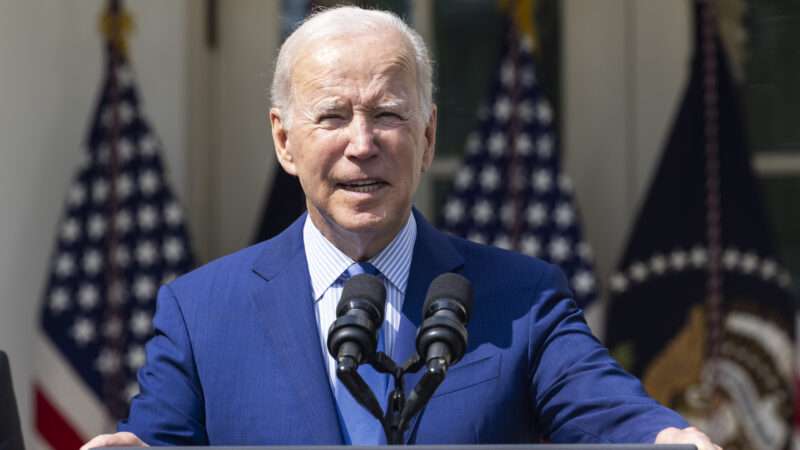
The White House made a big splash in May 2022 when it announced that its Housing Supply Action plan would use competitive transportation grant programs to reward jurisdictions that remove regulatory barriers to new housing construction.
The $1.2 trillion Infrastructure Investment and Jobs Act, enacted in November 2021, also dramatically boosted funding for these grant programs—giving the feds a lot more carrots with which to reward governments for removing red tape on new development.
But as the grant awards from these retooled transportation grant programs trickle out, there's little evidence the money is going to reformist jurisdictions.
Late last week, the U.S. Department of Transportation announced the recipients of $1.5 billion in grants from the Infrastructure for Rebuilding America (INFRA) program—one of five grant programs the administration said would be used to encourage zoning reforms.
Of the 26 INFRA grant awards this cycle, 19 are going to state transportation departments or port authorities that don't set zoning regulations or issue residential building permits. These bureaucracies can't be incentivized to change regulations they don't have any power over in the first place.
And the few INFRA recipients that do approve building permits don't appear to have been on the cutting edge of zoning reform. Some are actively fighting reform.
Rural Carver County, Minnesota, received a $10 million grant to widen a two-lane road into a four-lane highway. The county's most recent comprehensive plan calls for protecting its "unique and rural agricultural character" from new commercial and residential development.
Flagstaff, Arizona, received a $32.4 million grant to build pedestrian safety improvements. Officials there recently argued against the need to lower impact fees for new development and a more permissive zoning code to address an estimated 7,000-unit shortage of homes.
"We're looking for units that are affordable. Market units do not deliver that," the city's director of community development told the Arizona Mirror earlier this month.
New York City received a $110 million grant to build electric charging stations and refrigerated warehouses at the city's Hunts Point Terminal Produce Market. This is despite the city underbuilding housing for the last decade and actively adopting an "inclusionary zoning" policy that actively disincentivizes new housing construction.
Some of the projects funded in this latest INFRA grant cycle fit with transportation priorities many urbanist zoning reformers would like to see. That includes a $104 million award to the Michigan Department of Transportation to convert a stretch of interstate highway in Detroit to a slower-speed boulevard.
But Detroit is probably one of the few cities in the country with too much housing. It had a 18 percent vacancy rate in 2020.
In short, none of the INFRA grants appear to be going to high-growth areas that are proactively making housing development easier.
It was a similar story with $2.2 billion in RAISE grants awarded last month, another one of the programs the Biden administration said it would retool to encourage zoning reform. Few of the awards appeared to have much to do with zoning. One of the largest RAISE awards went to San Francisco, which is currently being investigated by California's state government for shooting down new housing in violation of state law.
Emily Hamilton, a senior research fellow at George Mason University's Mercatus Center, says there are inherent limits to the executive branch trying to bootstrap zoning reform incentives to existing transportation grant programs.
"If federal policy makers want to use grants as a tool to really encourage local zoning reform, what they would need to do is create a grant that is specifically intended to do that, not intended to achieve many other objectives at the same time," she told Reason last month.
An ideal version of that program would be available to all jurisdictions that permit housing, she says. It would also reward cities and counties for housing market outcomes (i.e., building more lower-cost housing), not policy proposals they plan to implement at a later date.
Creating such a program will require congressional action, says Hamilton. Lawmakers have proposed creating dedicated zoning reform programs. None have made it very far in the legislative process, however.
The post Federal Money Intended for Zoning Reformers Ends Up in NIMBY Clutches appeared first on Reason.com.







